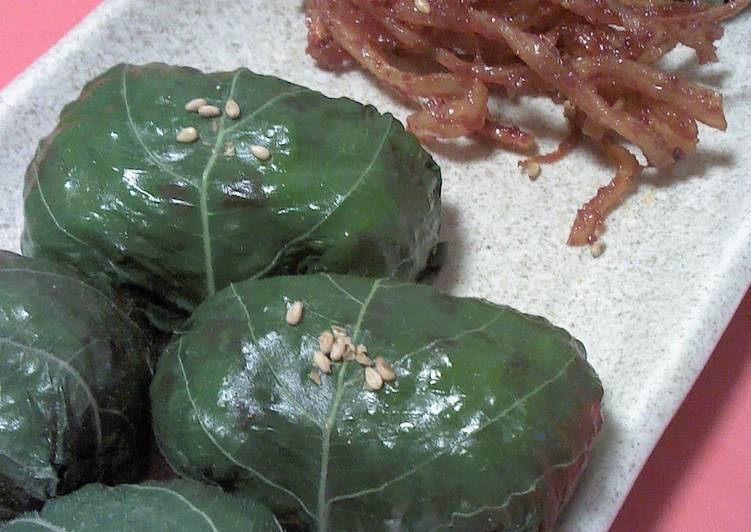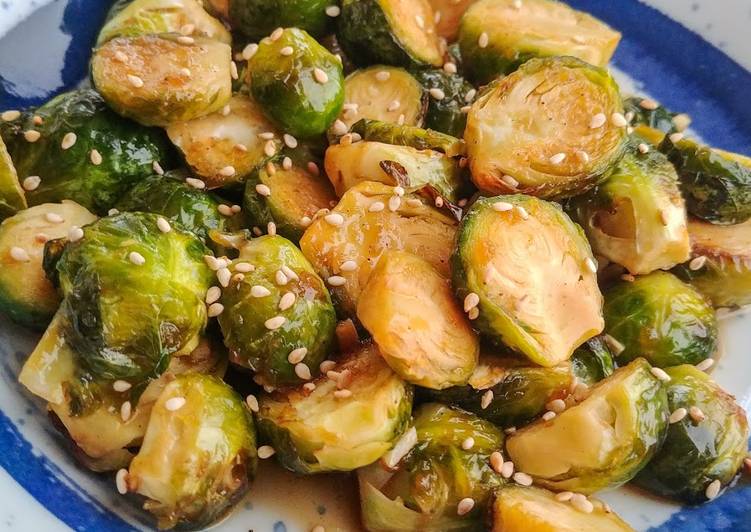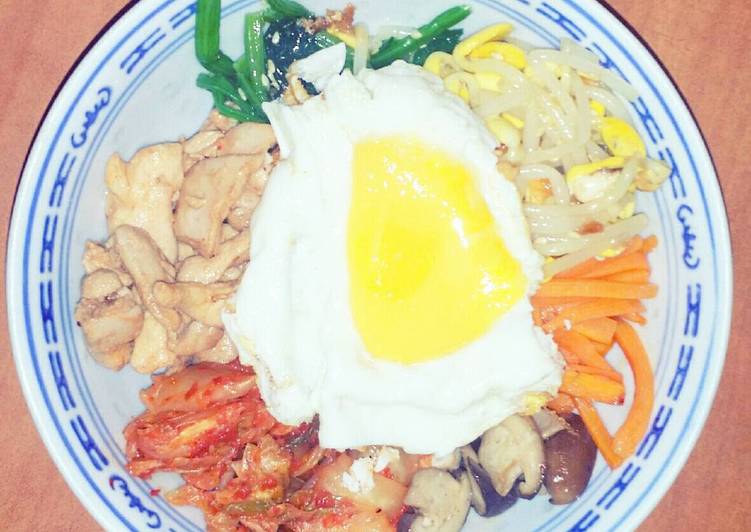
Hey everyone, I hope you are having an amazing day today. Today, I will show you a way to make a distinctive dish, egoma leaf onigiri (rice balls) korean dish. It is one of my favorites food recipes. This time, I am going to make it a bit tasty. This will be really delicious.
Egoma Leaf Onigiri (Rice Balls) Korean Dish is one of the most well liked of recent trending foods on earth. It is easy, it’s fast, it tastes yummy. It’s appreciated by millions daily. They are fine and they look fantastic. Egoma Leaf Onigiri (Rice Balls) Korean Dish is something that I have loved my whole life.
Onigiri, also known as Japanese rice ball is a great example of how inventive Japanese cuisine can be. It is also a Japanese comfort food made from steamed rice formed into the typical triangular, ball, or cylinder shapes and. Since my step daughter visiting us for her summer break, I'm making a lot of snack for her.
To get started with this particular recipe, we have to prepare a few ingredients. You can cook egoma leaf onigiri (rice balls) korean dish using 8 ingredients and 9 steps. Here is how you cook that.
The ingredients needed to make Egoma Leaf Onigiri (Rice Balls) Korean Dish:
- Prepare 30 Egoma leaves
- Prepare 700 grams Plain cooked rice
- Take 100 grams Minced beef (or minced beef and pork mix)
- Prepare 1/2 tsp Carrot
- Take 4 1/2 tbsp Soy sauce
- Make ready 3 tbsp Mirin
- Make ready 1 1/2 tbsp Sugar
- Get 1 tsp Sesame oil
You can put almost anything in an onigiri; try substituting grilled salmon, pickled plums, beef, pork, turkey, or tuna with mayonnaise. So I've went over the basics and important details on how to make really good Japanese rice balls, but I wanted to really highlight in this blog These rice balls are one of those things that just taste better freshly made BUT I do have a couple tips to keeping Onigiri fresh. Korean Rice Balls or Joomukbap or Jumeok Bap are best on-the-go lunch for adults or kids. Filling variations are endless and can be gluten free and Wasabi Tuna Onigiri w/ Perilla Leaves - Rhubarb & Cod.
Instructions to make Egoma Leaf Onigiri (Rice Balls) Korean Dish:
- Sauté the meat and roughly chopped carrot, and add the soy sauce, mirin, and sugar.
- Cook until the liquid is almost completely evaporated out of the pan. Since you will mix this meat mixture with rice, it should be a little salty.
- These are egoma leaves. They are a little bigger and thicker than shiso leaves.
- Add a little salt to boiled water, and parboil the egoma leaves for 1-2 minutes. They will become too soft if you boil them for too long, so parboil them briefly.
- To prevent them from discoloring, blanch in cold water after parboiling.
- Drain the leaves, and wring them tightly in your hands. They are quite tough, so don't worry – just wring them as tightly as you can.
- Add the meat mixture from Step 2 and sesame oil to the cooked rice.
- Spread out the egoma leaf, taking care not to tear it, and wrap a rice ball inside. Trim off the stems.
- This is how they turn out. They make bite-sized pieces.
Part sushi, part tuna fish sandwich and all the way delicious, these Wasabi Tuna Onigiri are. Where I live, it's pretty difficult to each an asian market, not to mention, I live with my grandparents so I'm trying this out in secret by not directly saying what I'm making / where it originates from. Onigiri (rice balls). [Update:] Be sure to check out my easier, neater way to make onigiri! [Another update:] See all kinds of onigiri on my new Onigiri are rice balls, usually with a tasty filling. They are very portable, and therefore are very popular for carry-along lunches. Part of their appeal lies in the.
So that is going to wrap it up for this exceptional food egoma leaf onigiri (rice balls) korean dish recipe. Thank you very much for your time. I’m sure you can make this at home. There’s gonna be interesting food at home recipes coming up. Remember to bookmark this page on your browser, and share it to your family, friends and colleague. Thank you for reading. Go on get cooking!


